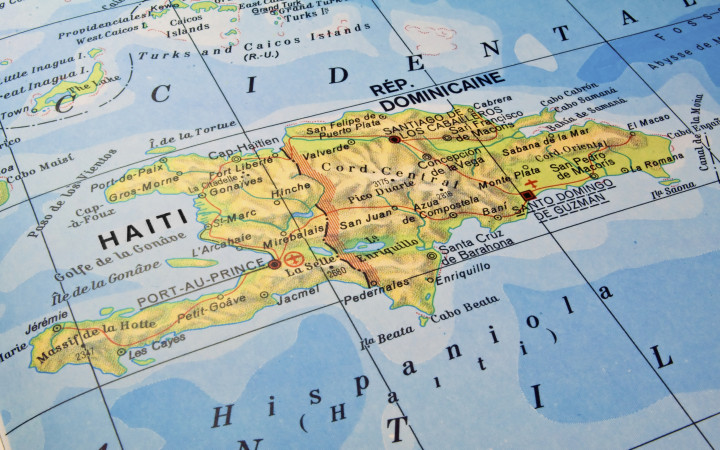Today’s Wonder of the Day was inspired by WonderTeam. WonderTeam Wonders, “What caused the Haitian Revolution?” Thanks for WONDERing with us, WonderTeam!
Today’s Wonder of the Day is about a major event in history. It dealt with the issue of slavery. It was a war that ended with freedom for thousands of formerly enslaved people. No, we’re not talking about the American Civil War. Today, we’re learning about the Haitian Revolution!
What caused the Haitian Revolution? To fully understand, we need to go all the way back to 1492. That year, Christopher Columbus became the first European known to make contact with people living in the area we know today as Haiti.
At that time, the native Taino and Ciboney people lived on the island. Contact with Europeans proved tragic for these cultures. This was especially true after Spanish invaders found gold in the area. They enslaved the native people, forcing them to mine gold.
Due to this brutal enslavement and the diseases brought by the Europeans, the Taino and Ciboney populations were wiped out by the end of the 16th century. After Spain took all of the island’s gold, French colonizers moved in. They named the region St. Domingue.
The gold was gone from St. Domingue, but the French found other natural resources. They built large plantations to grow sugar cane, coffee beans, indigo, and cotton. They kidnapped and enslaved people from western and central Africa to work these fields.
By 1789, the population of St. Domingue was 556,000 people. 500,000 of these people were enslaved—far outnumbering their white enslavers. Three other social groups also existed on the island. One was a free, wealthy group of Black and mixed-race people. There were also poor white people who owned no land. Another group, the maroons, had escaped from slavery and lived in the mountains.
Inspired by the events of the French Revolution, many people in St. Domingue sought change. There was a great deal of unrest between the social groups. This was largely caused by racism and economic anxiety.
On August 21, 1791, the enslaved people of St. Domingue revolted. Led by a formerly enslaved man named Toussaint l’Ouverture, they overtook their white captors. By 1792, the rebels had taken a third of the island.
Soon, both France and Great Britain had sent forces to bring back colonial rule. However, l’Ouverture’s troops held them off. By 1798, British soldiers left St. Domingue. In 1801, the rebels also succeeded in pushing Spanish forces out of neighboring Santo Domingo. Today, this nation is known as the Dominican Republic.
The Haitian Revolution was a very bloody war. Historians believe that around 20 percent of people living in St. Domingue were killed. In 1803, l’Ouverture himself was taken by troops sent by Napoleon Bonaparte. He later died in a French prison.
With l’Ouverture gone, Jean-Jacques Dessalines and Henry Christophe led the fight against France. It was Dessalines who named the nation Haiti. He declared its independence on January 1, 1804.
Haiti was the first nation founded by people who were formerly enslaved. In the western hemisphere, it was only the second country to win independence from a European nation. As a result, much of Europe refused to acknowledge Haiti. They feared losing other colonies.
In much of the world—and especially the southern U.S.—enslavers feared the spread of the anti-slavery movement after the Haitian Revolution. American enslavers did all they could to quiet news of the rebellion’s success. Still, historians agree that the Haitian Revolution influenced uprisings in the U.S. and perhaps even the Civil War itself.
It wasn’t until 1825 that France formally accepted Haiti’s independence. Today, Haiti continues to experience the negative effects of the history of European colonization.
Standards: C3.D2.Civ.12, C3.D2.Civ.14, CCRA.R.4, CCRA.L.3, CCRA.L.6 CCRA.R.10, CCRA.R.1, CCRA.SL.1, CCRA.L1, CCRA.W.2, CCRA.SL.3, CCRA.L.2, CCRA.R.2




